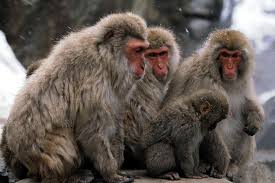primates
英 [ˈpraɪ.meɪt]
美 [ˈpraɪ.meɪt]
- n. 灵长类
使用频率:

记忆方法
1、prim- + -ate + -s.
2、含义:animal of the biological order including monkeys and humans, so called from supposedly being the "highest" order of mammals (originally also including bats).
2、含义:animal of the biological order including monkeys and humans, so called from supposedly being the "highest" order of mammals (originally also including bats).
权威例句
- 1. Primates are alert, inquisitive animals.
- 灵长目动物是机灵 、 好奇的动物.
- 2. Consciousness or cerebration has been said to have emerged in the evolution of higher primates.
- 据说意识或思考在较高级灵长类的进化中已出现.
- 3. Post - conflict behavior has been reported in most of non - human primates.
- 冲突后行为(post -conflictbehavior )在非人灵长类中普遍存在.
- 4. Blastocystis hominis is an intestinal protozoan parasite restricted to humans and primates.
- 人芽囊原虫(Blastocystishominis, B. h)是一种存在于人类和其他灵长类动物体内的肠道寄生原虫.
- 5. This is the first scientific study that finds envy in non - primates.
- 这是科学家首次在 非 灵长类动物身上发现这种情绪.